Search the Special Collections and Archives Portal
Search Results
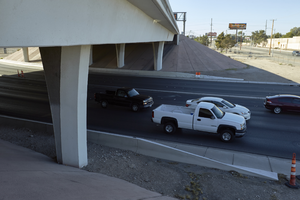
Traffic flows under the freeway overpass at East Sahara Avenue and Sandhill Road looking south, Las Vegas, Nevada: digital photograph
Date
2017-09-14
Archival Collection
Description
Traffic flows under the freeway overpass at East Sahara Avenue near Sandhill Road.
Image
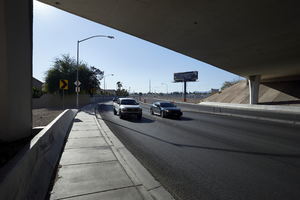
Traffic flows under the freeway overpass at East Sahara Avenue and Sandhill Road looking east, Las Vegas, Nevada: digital photograph
Date
2017-09-14
Archival Collection
Description
Traffic flows under the freeway overpass at East Sahara Avenue near Sandhill Road.
Image
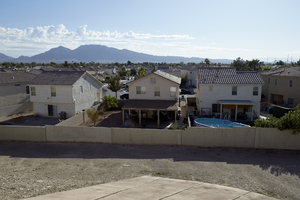
Neighborhood near the freeway overpass at East Sahara Avenue looking east, Las Vegas, Nevada: digital photograph
Date
2017-09-14
Archival Collection
Description
A neighborhood sits along East Sahara Avenue and the US 95 freeway overpasss.
Image
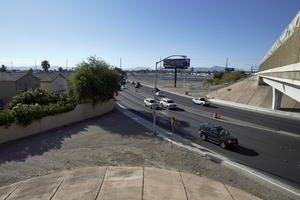
Traffic on East Sahara Avenue and the US 95 freeway overpass looking south, Las Vegas, Nevada: digital photograph
Date
2017-09-14
Archival Collection
Description
Traffic flows on East Sahara Avenue near the US 95 freeway overpass.
Image
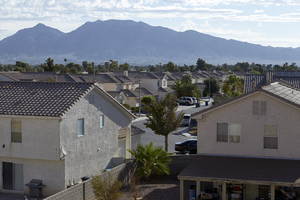
Neighborhood near the freeway overpass at East Sahara Avenue looking east, Las Vegas, Nevada: digital photograph
Date
2017-09-14
Archival Collection
Description
A neighborhood sits along East Sahara Avenue and the US 95 freeway overpasss.
Image
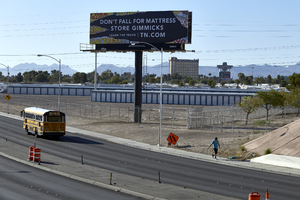
Bus and pedestrian on East Sahara Avenue and the US 95 freeway overpass looking east with billboard and Boulder Station, Las Vegas, Nevada: digital photograph
Date
2017-09-14
Archival Collection
Description
A school bus travels on East Sahara Avenue near the US 95 freeway overpass as a pedestrian uses the sidewalk.
Image
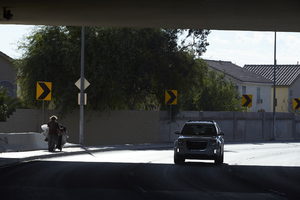
Homeless man and car use the freeway overpass at East Sahara Avenue and Sandhill Road looking east, Las Vegas, Nevada: digital photograph
Date
2017-09-14
Archival Collection
Description
A homeless man pushes his cart on the sidewalk as a car makes its way under the freeway overpass at East Sahara Avenue near Sandhill Road.
Image
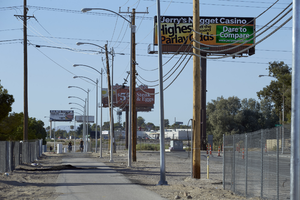
Bike path off East Sahara Avenue and Sandhill Road looking south, Las Vegas, Nevada: digital photograph
Date
2017-09-14
Archival Collection
Description
The bake route off East Sahara Avenue near Sandhill Road.
Image
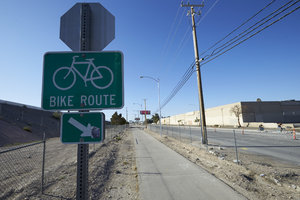
Bike path off East Sahara Avenue and Sandhill Road looking south, Las Vegas, Nevada: digital photograph
Date
2017-09-14
Archival Collection
Description
The bake route off East Sahara Avenue near Sandhill Road.
Image
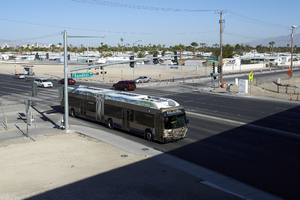
Traffic at the intersection of East Sahara Avenue and Sandhill Road looking north, Las Vegas, Nevada: digital photograph
Date
2017-09-14
Archival Collection
Description
Traffic navigates the intersection of East Sahara Avenue and Sandhill Road.
Image
Pagination
Refine my results
Content Type
Creator or Contributor
Subject
Archival Collection
Digital Project
Resource Type
Year
Material Type
Place
Language
Records Classification
